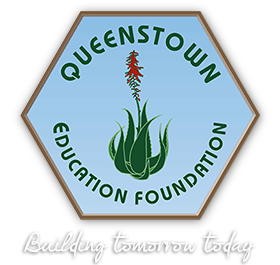
Educational institutes which intend to give their learners everything they need to thrive in our fast-paced 4th Industrial Revolution (4IR), have begun creating innovative classrooms like Makerspace in Queenstown of the Eastern Cape, South Africa.
A Science, Technology, Engineering and Maths (STEM) educational curriculum has been developing in the international arena since 2002. Over the last three years, it has filtered into South Africa. Common STEM projects include, amongst others, bridge building and basic computer programming. More recently, Art and Robotics have been included, giving rise to the acronym STREAM.
Last month Minister Angie Motshekga announced that her department of Basic Education has developed a Coding and Robotics curriculum for Grade R to Grade 3 learners as well as Grade 7s, which she says, will be in place in January 2020. However, as you know, the Computer Applications Technology (CAT) curriculum is currently only for Grades 10, 11 and 12. So how do schools bridge the gap?
QEF has identified Queenstown Get Ahead Project’s (QGAP) Makerspace as an example of an effective enrichment programme.
We are excited to invite all heads of schools and interested teachers from QEF affiliate schools to visit QGAP’s innovative Makerspace class. This is an opportunity for us to further develop and grow collaboration among our affiliate schools. (Please see the attached invitation for Monday, 26 August between 14:30 – 15:30.)
Get Ahead Project embarked on their STEAM journey in 2016 and have done extensive professional development with their staff in order to equip their teachers with the necessary skills for technology integration and cross-curricular teaching.
The Makerspace is a designated area where DIY meets education. It is where students have an opportunity to explore their own interests, learn to use tools and materials, both physical and virtual, and develop creative projects. Playful learning helps students to make learning connections and solve real-world problems, providing context for their learning.
This space empower students, encouraging a shift from being passive consumers of knowledge and information to active creators and innovators. The Makerspace offers authentic learning experiences connected to the real world, engaging students in the ‘big picture’. The focus is not necessarily on the end product, but on the process involved during the design and construction phases.
According to Makerspace teacher, Sarah-Lee Frewen, this innovative room has the following benefits to the students:
- Embedding 21st Century skills, namely communication, collaboration, creative thinking, critical thinking and innovation
- Facilitates learning across the curriculum
- Playful learning
- Builds confidence
- Develops fine motor co-ordinator
- Encourages calculated risk-taking
- Activities encourage left and right brain integration
QEF recognises GAP as leading the field for how it has attracted interest and energy to their space and is delighted to make it possible for you to visit.
QEF DIGITAL MEMBER SCHOOLS are Queen’s College Boys’ High School, Queen’s College Boys’ Primary School, Queenstown Girls’ High School, Balmoral Girls’ Primary School and Laerskool Hangklip.
QEF AFFILIATE SCHOOLS include: Hoërskool Hangklip High School , Southbourne Primary School, Get Ahead Project, Get Ahead College, Get Ahead Project Whitlesea, Hexagon High School and Stepping Stone Primary School.
